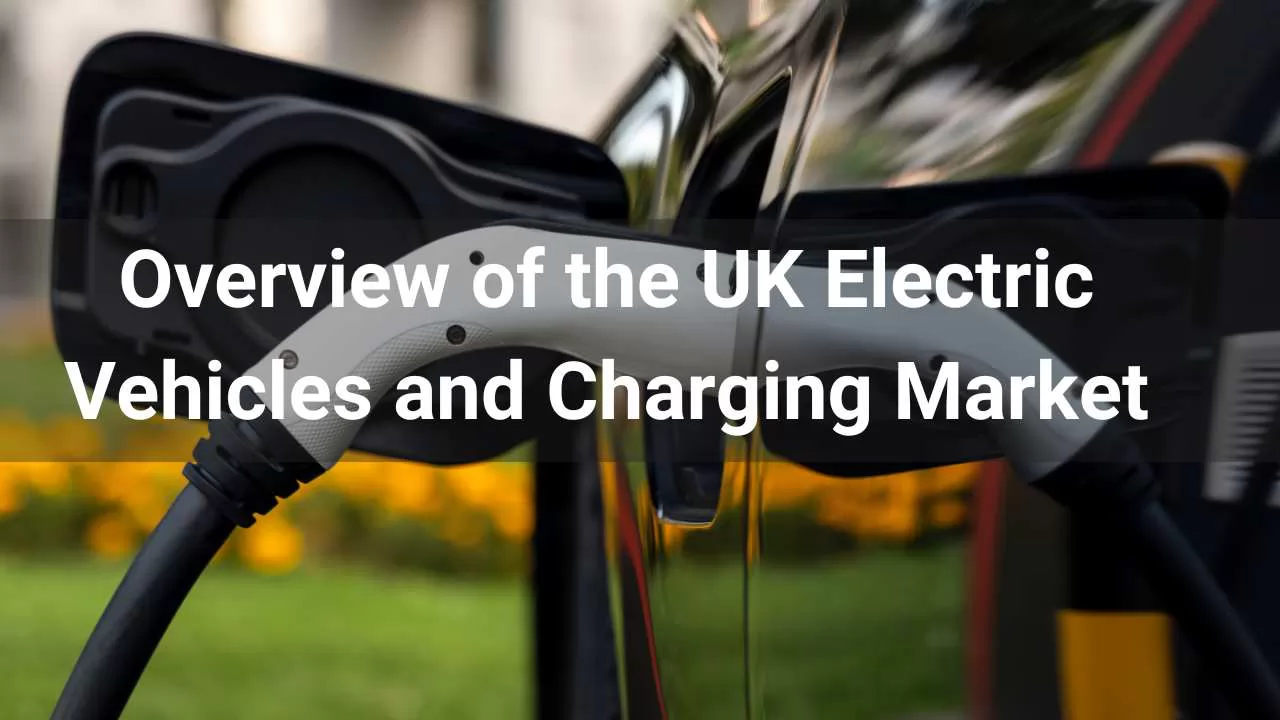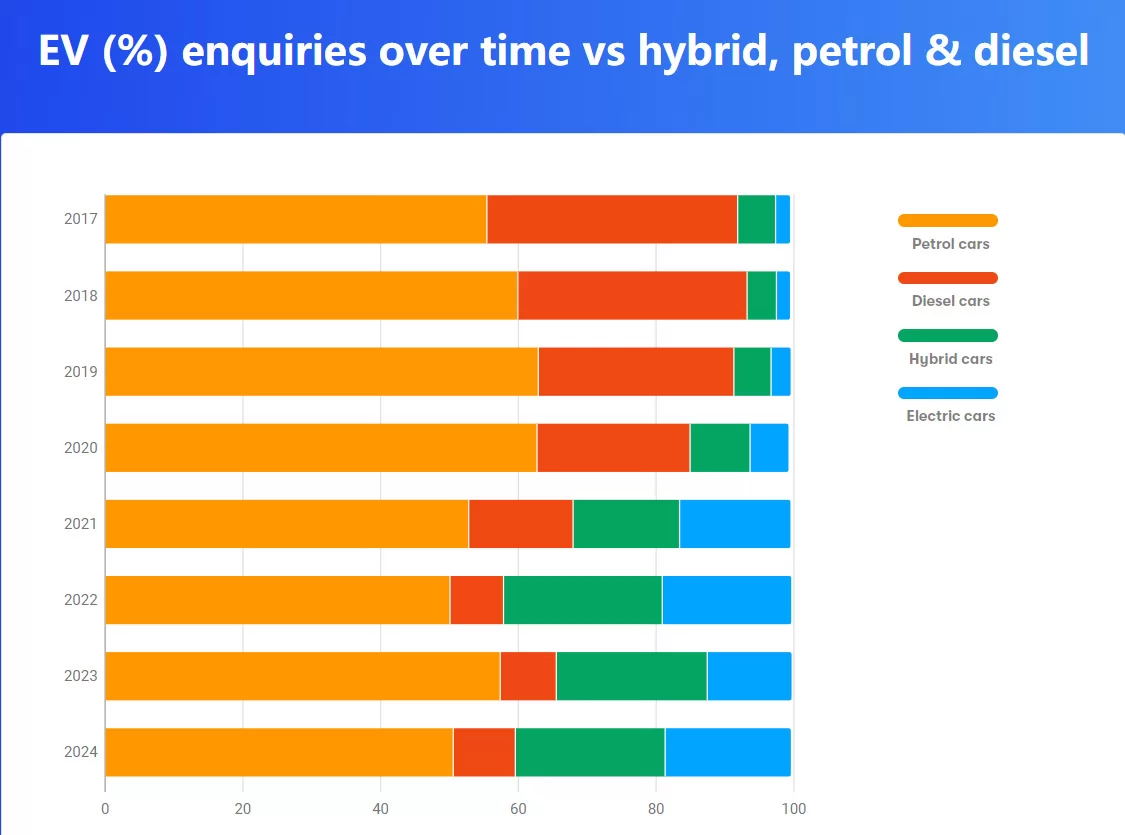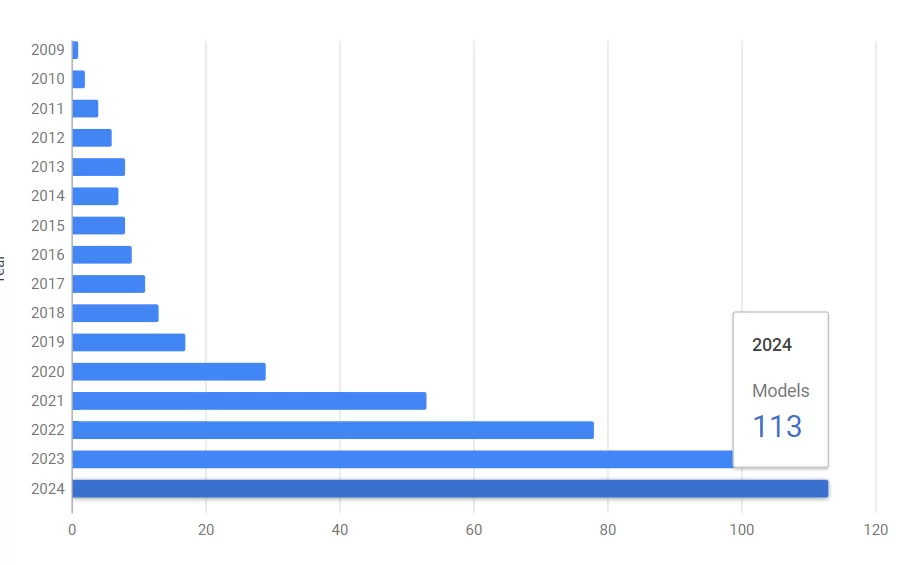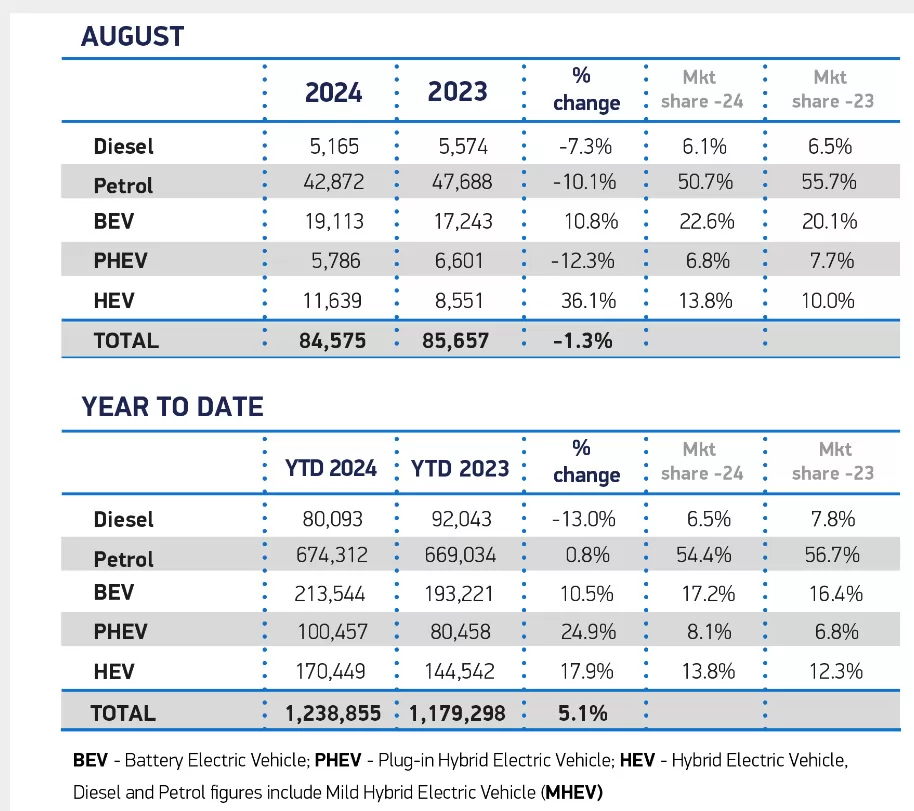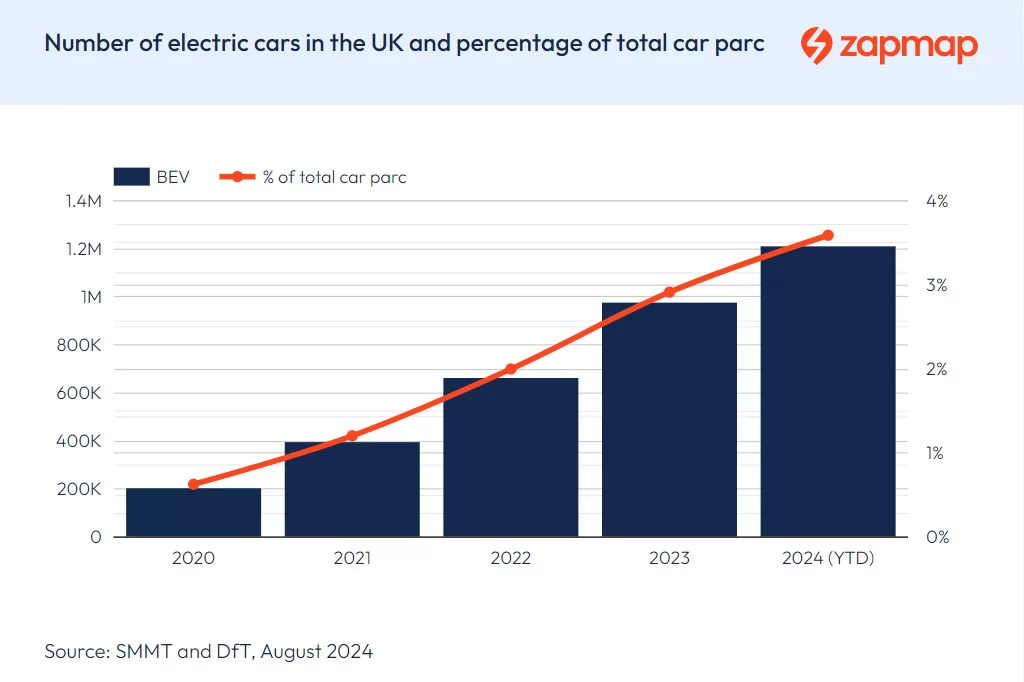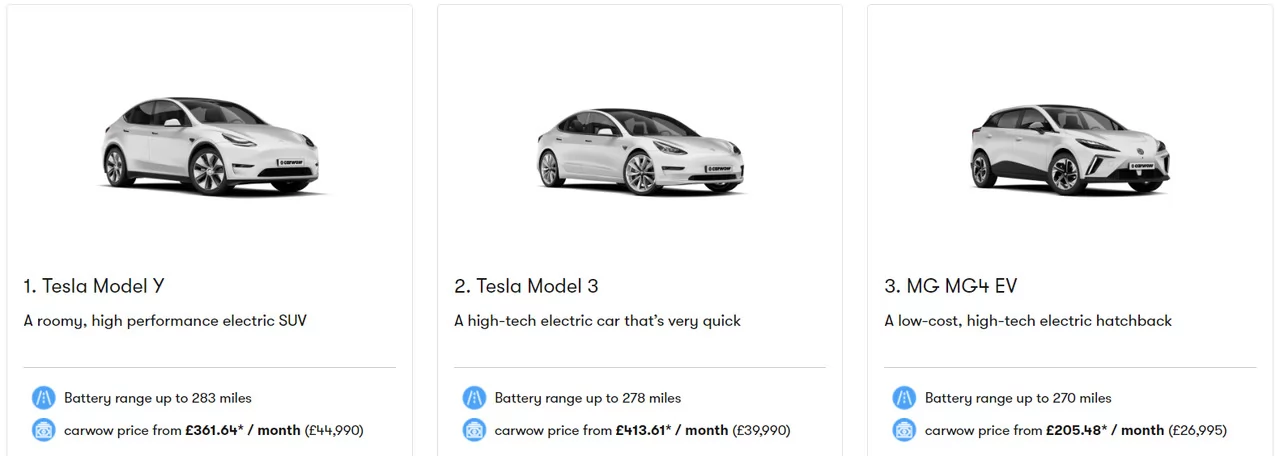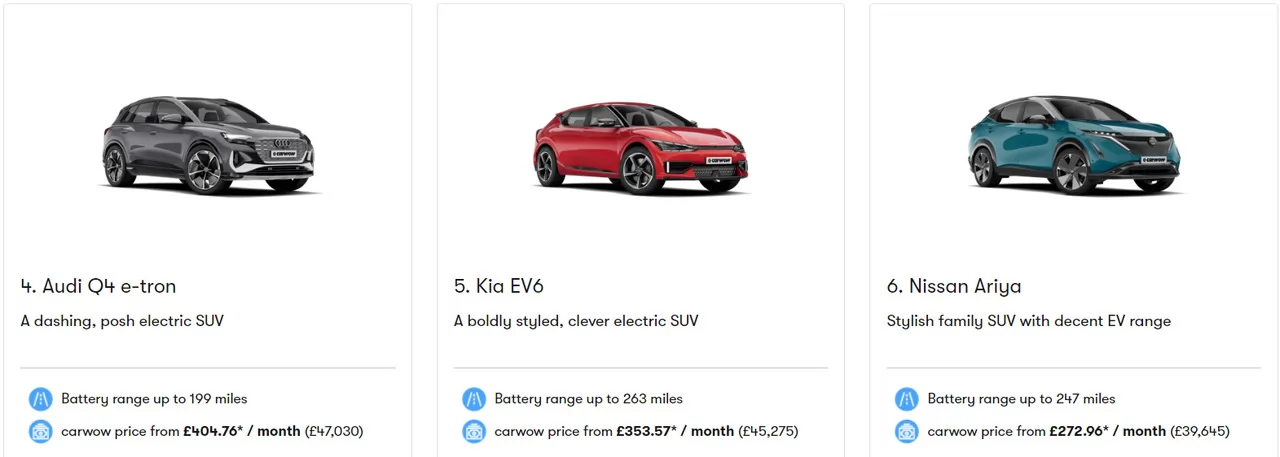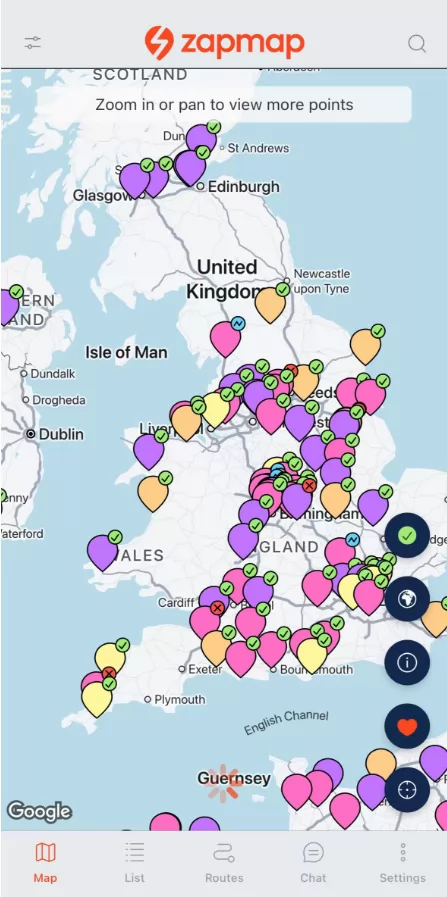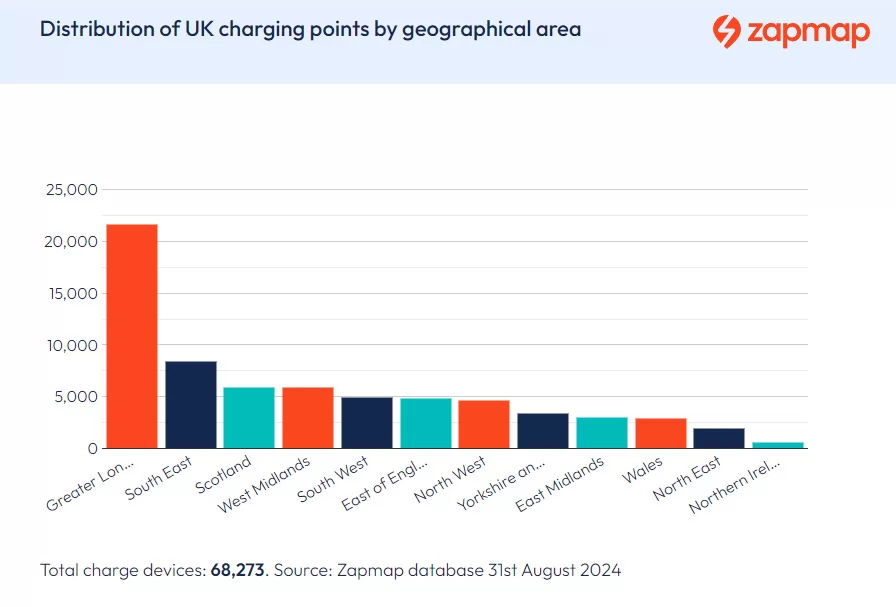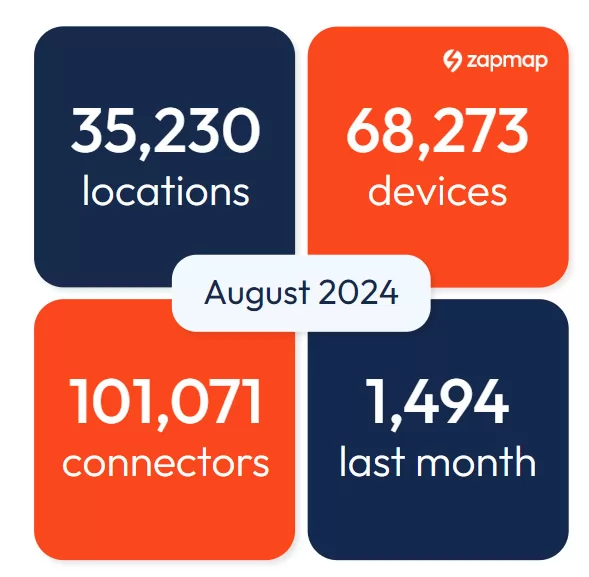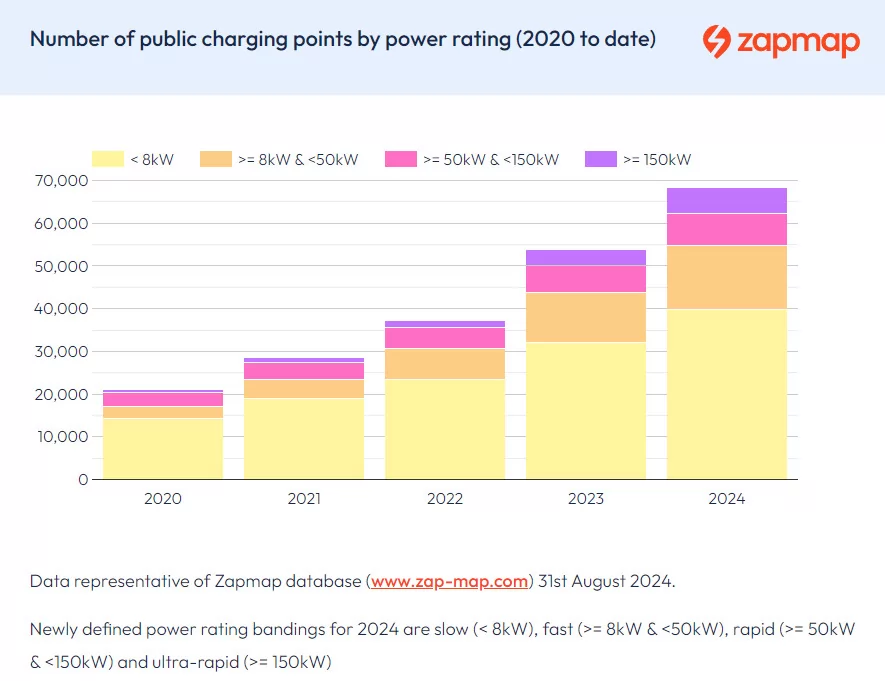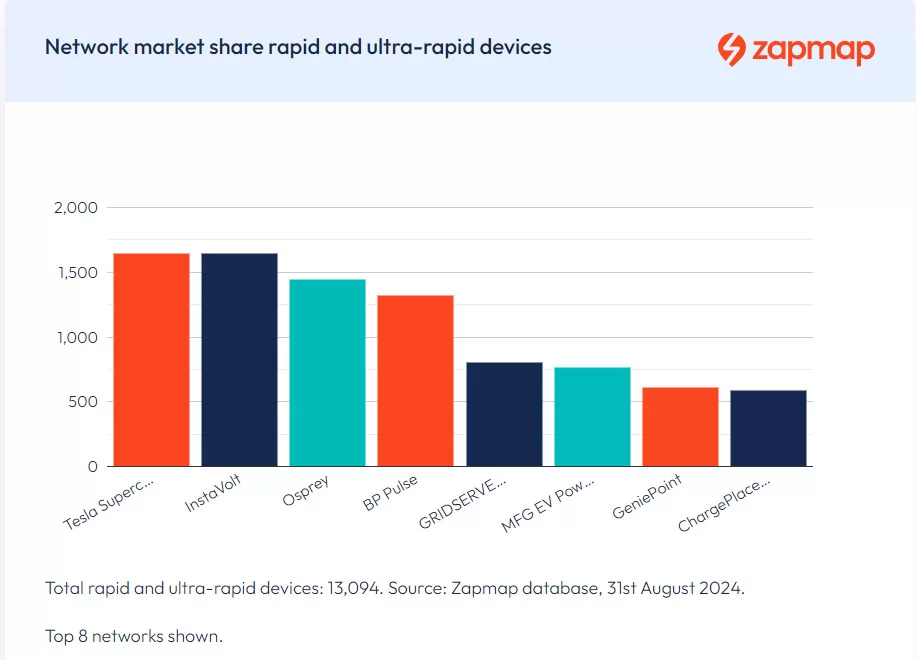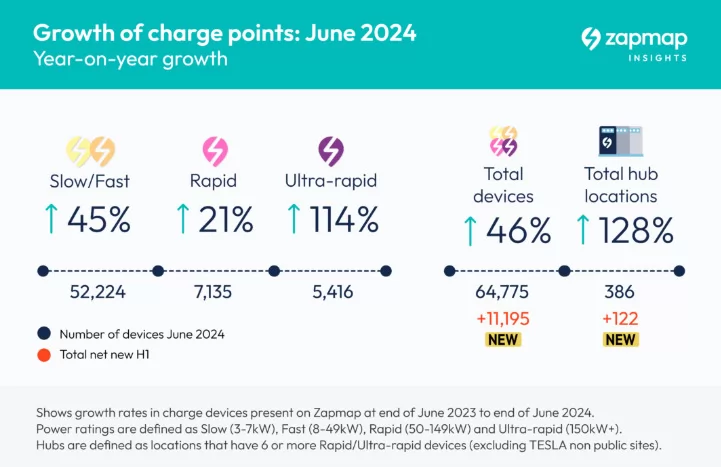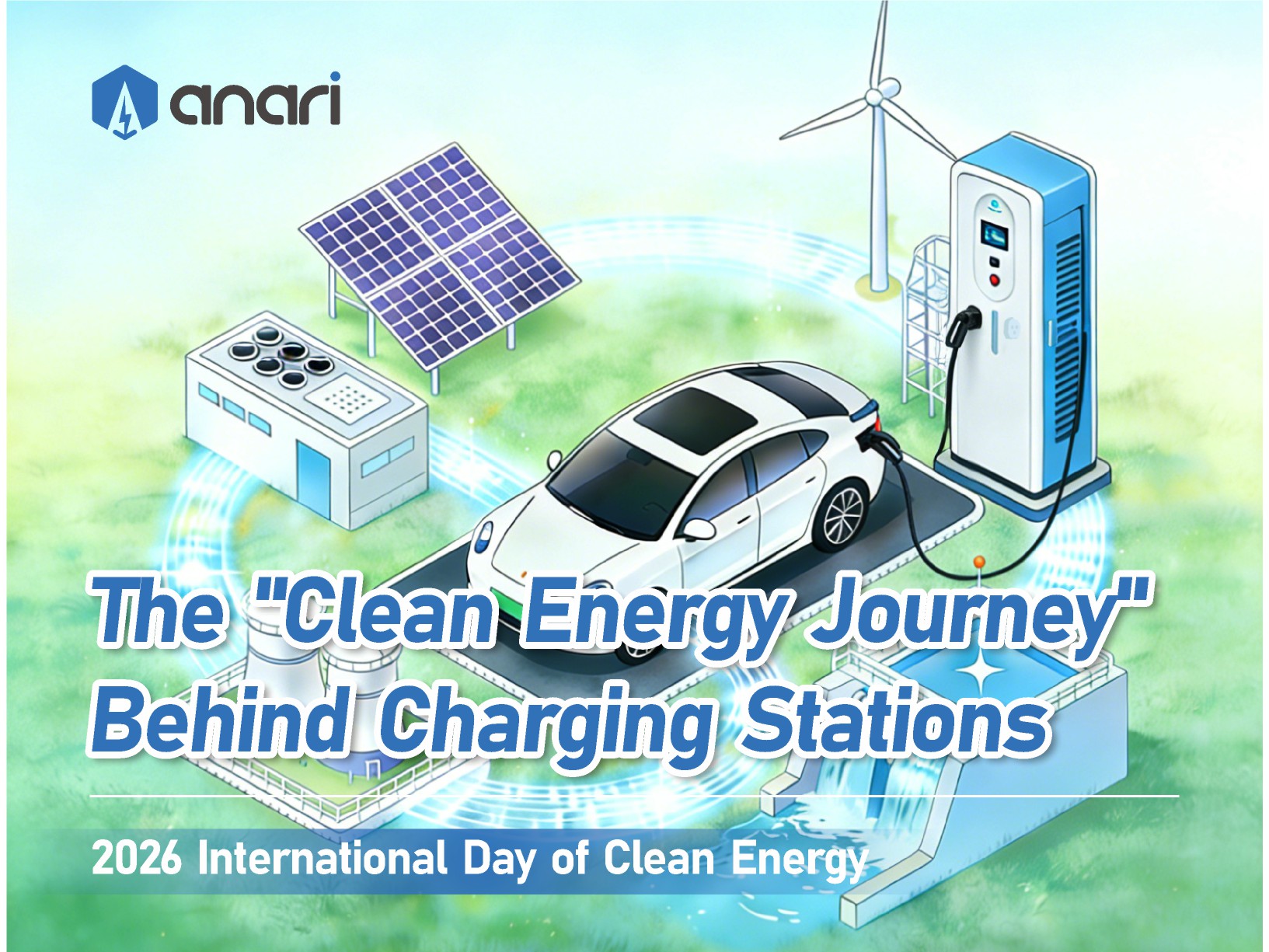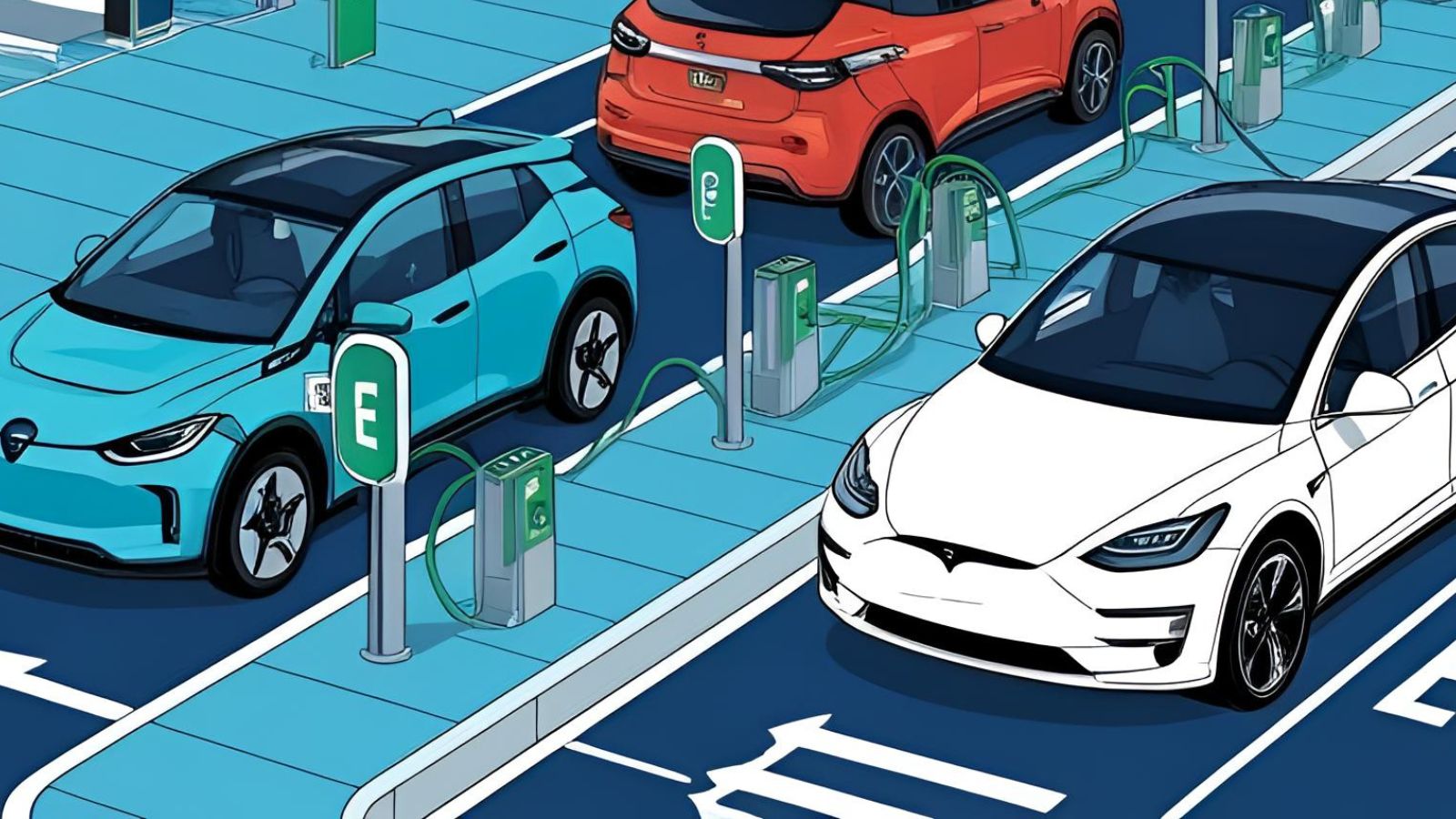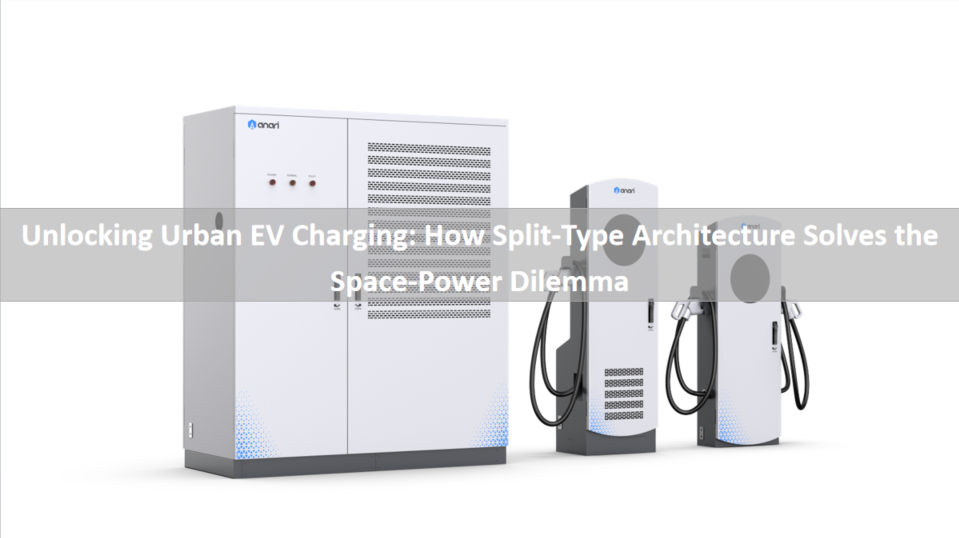The electric vehicle (EV) and charging market in the United Kingdom is experiencing significant growth and shows substantial future potential. This evolution reflects an increasing demand for sustainable transportation and clean energy. The UK government is dedicated to advancing electric vehicles and clean energy technologies, implementing various incentive measures and policy supports, including purchase subsidies, tax incentives, and the expansion of charging infrastructure. Consequently, more consumers are opting for electric vehicles to reduce emissions and dependence on fossil fuels. To facilitate the adoption of EVs, different regions in the UK are actively expanding the charging infrastructure network by establishing charging stations in cities, highways, and other public locations, allowing EV owners to charge their vehicles anytime and anywhere.
Overview of the UK's electric vehicle and ev charging market
With the improvement of consumers' environmental awareness and the support of government policies, the demand for electric cars has continued to increase in recent years. The number of EVs on sale has grown significantly, meaning consumers have a much greater choice of electric cars than they did just several years ago.
Source: https://www.carwow.co.uk/electric-cars/statistics
With environmental factors at the forefront of global politics, the UK government continues to invest millions into the transition to EVs as part of their net zero emission strategy. As such, the rate of electric car sales in the UK is predicted to boom in the coming years. In 2025 to date, there has been 213,544 new fully electric cars sold, which is 17.2% market share of all new cars registered this year.
source:https://www.smmt.co.uk/vehicle-data/car-registrations/
As of the end of August 2025, there are over 1,200,000 fully electric cars in the UK. This means that around 3.5% of the c.34 million cars on UK roads are fully electric.
The graph below shows the growth in the number of electric cars in the UK between 2020 and 2025. At the end of 2020, there were 205,770 electric cars, which represented 0.6% of all cars on the road and since then the number of electric cars has increased more than five-fold.
source:https://www.zap-map.com/ev-stats/ev-market
Here are some popular EV brands in the UK.
Source: Carwow
2025 sees a surge in public electric vehicle charging infrastructure in the UK. EV charger installations are keeping pace with increasing sales of battery vehicles. According to the report by ChargeUK, there are currently approximately:
• 809,181 home chargers
• 57,510 workplace chargers
• 64,632 public chargers
Combined this means that there are approximately 931,323 charge points in the UK supporting 1.1 million EVs.
Charging companies are plugging the gaps in the UK’s high-speed charger network that will help end the “range anxiety” that holds back some would-be electric car buyers. The capital and the south-east still have far more chargers of all speeds – ranging from slow to rapid and ultra-rapid – than the rest of the country. But the presence of high-speed chargers, generally used for quick recharging on longer journeys, is increasing in other regions as electric car sales surge.
The West Midlands, east Midlands, the south-west of England and Wales all installed more rapid or ultra-rapid chargers than London during the past year, and their networks have grown more rapidly than the south-east of England, according to data from ZapMap, which maps UK public charging points.
According to the analysis by ChargeUK, in the UK:
• The ratio of EVs to public chargers as of July 2025 is: 17:1
• The ratio of EVs to home chargers as of July 2025 is: 1.4:1
• The ratio of EVs to the total combined chargers in the UK including home, work and public is: 1.2:1
According to the latest statistics from Zapmap, at the end of August 2025, there were 68,273 electric vehicle charging points across the UK, across 35,230 charging locations.
The network with the most rapid and ultra-rapid electric vehicle charging points is Tesla, which had 1,644 charge points at the end of August 2025.
After Tesla, InstaVolt operates the most rapid and ultra-rapid charging points in the UK, with 1,643, followed by Osprey with 1,442.
In August 2025, 1,494 net new EV charging devices were added to the Zapmap database. This was made up of 388 slow, 756 fast, and 114 rapid and 236 ultra-rapid devices. Chargers are being installed at a significantly faster rate. In 2023, an average of 1,387 chargers were installed per month. This year, the monthly average has climbed to 1,865 installations, a 34% increase.
Source: Zapmap
However, the charge point industry is concerned that the pace could slow if the government does not take action to speed up connections to the electricity grid and make it easier to receive permits and planning approvals for public chargers.
Policies on Electric Vehicles and Charging Infrastructure in the UK
The UK government has implemented a series of policies and incentives to promote the development of new energy vehicles (especially electric vehicles) and charging infrastructure. Here are the main policies regarding new energy vehicles (NEVs) and charging stations in the UK:
1.Incentives for Electric Vehicles
-
Ban on Sales of Petrol and Diesel Cars: The UK government aims to stop selling new petrol and diesel cars by 2030 and end the sale of plug-in hybrid vehicles by **2035**. This target is set to accelerate the growth of the electric vehicle (EV) market.
-
Electric Vehicle Purchase Subsidies: The government previously offered the "Plug-in Car Grant" to encourage the purchase of NEVs. Although this scheme ended in 2022, specific subsidies still exist for electric vans and motorcycles.
-
Vehicle Tax Benefits: Fully electric vehicles are exempt from Vehicle Excise Duty (VED) (road tax) until 2025.
-
Company Car Tax Benefits: Businesses using electric vehicles as company cars can enjoy reduced Benefit-in-Kind (BiK) tax, lowering the tax burden for businesses.
2. Charging Stations and Infrastructure Development
-
Home Charging Subsidies: Through the "EV Homecharge Scheme," the UK government provides subsidies to help residents install home charging points. Eligible households can receive partial coverage of installation costs.
-
Public Charging Investments: The UK government has committed billions of pounds through the "Rapid Charging Fund" and other schemes to expand the rapid charging network. The goal is to have a rapid charging station every 65 kilometers along major highways and routes by 2030.
-
Workplace Charging Support: The "Workplace Charging Scheme" provides subsidies for businesses to install charging facilities for employees and fleet vehicles.
-
Public Charging Infrastructure: The government encourages local authorities to install more charging stations in public areas like parking lots and streets, especially in residential areas without private parking spaces.
3. Supporting Infrastructure for New Energy Vehicles
-
Grid Upgrades: To meet the increasing demand for EV charging, the UK government is promoting modernization and upgrades to the electricity grid.
-
Smart Charging and Energy Management: The UK supports the development of smart charging technology, allowing EV owners to charge their vehicles during off-peak electricity rates. Vehicle-to-Grid (V2G) technology is also encouraged, enabling electric vehicles to supply power back to the grid to balance electricity demand.
4. Emission Reduction Targets and Environmental Policies
-
Emissions Reduction Targets: The UK’s "Net Zero by 2050" target aims for net-zero carbon emissions by 2050, with the auto industry playing a key role. EVs are seen as essential to achieving this goal.
-
Low Emission Zones: Several UK cities, such as London, have introduced "Ultra Low Emission Zones" (ULEZ) where high-emission vehicles are charged for entry, incentivizing the use of electric or low-emission vehicles.
5. Research and Technology Support
-
Battery Technology and Manufacturing: The UK government supports local research and manufacturing of batteries, encouraging investment in key EV technologies to enhance the international competitiveness of the UK electric vehicle industry.
-
Innovation Funding: The government has established several innovation funds, such as the **Faraday Battery Challenge**, to support the research and development of technologies related to NEVs, including batteries, charging, and other critical components.
Through these policies, the UK government aims to promote the widespread adoption of new energy vehicles and the development of charging infrastructure, supporting its future carbon-neutral goals. These efforts not only make EVs more accessible and practical but also provide significant financial incentives for both consumers and businesses.
Charging networks and charging brands in the UK
The UK has several charging network operators and charging station brands that provide extensive services and infrastructure for electric vehicle (EV) users. Below are some of the key charging network operators and brands:
1. BP Pulse
-
BP Pulse is one of the largest charging networks in the UK, operated by BP and formerly known as Chargemaster. It provides home chargers, public charging stations, and services on motorways.
-
Features: Offers fast and ultra-fast charging stations, widely distributed across motorways and urban areas in the UK.
-
Website: BP Pulse
2. Pod Point
-
Pod Point is a leading UK charging station provider, offering solutions for homes, businesses, and public places. Their charging points are commonly found at supermarkets, shopping malls, and car parks.
-
Features: Provides smart home chargers and collaborates with several commercial partners to offer public charging facilities.
-
Website: Pod Point
3. IONITY
-
IONITY is a European ultra-fast charging network aimed at long-distance EV drivers. It is backed by major automakers such as BMW, Ford, Mercedes, and Volkswagen, with extensive coverage in the UK.
-
Features: Focuses on 350kW ultra-fast charging stations, mainly along motorways and key transport hubs.
-
Website: IONITY
4. Osprey Charging
-
Osprey Charging is a UK-based rapid charging network offering convenient charging points for EV drivers. Osprey's stations are often installed near supermarkets, retail parks, and major transport routes.
-
Features: Provides reliable rapid charging services, compatible with all types of EVs.
-
Website: Osprey Charging
5. Shell Recharge
-
Shell Recharge is an electric vehicle charging network operated by Shell, providing home and public charging solutions. Shell Recharge stations are found at its petrol station network and in urban areas.
-
Features: Combines Shell’s traditional fuel station network with convenient EV charging, and is expanding its ultra-fast charging facilities.
-
Website: Shell Recharge
6. Tesla Supercharger
-
Tesla Supercharger is Tesla’s exclusive fast-charging network, offering charging services along motorways and in major cities for Tesla drivers. It’s designed specifically for Tesla vehicles but has begun opening some stations to other EV brands.
-
Features: Provides extremely fast charging, optimized for Tesla vehicles.
-
Website: Tesla Supercharger
7. ChargePlace Scotland
-
ChargePlace Scotland is the national electric vehicle charging network in Scotland, supported by the Scottish Government. It offers public charging services across Scotland for all types of EVs.
-
Features: Offers a wide network of public charging points, being the primary charging network for EV users in Scotland.
-
Website: ChargePlace Scotland
8. Gridserve Electric Highway
-
Gridserve, operating the Electric Highway, is one of the UK’s earliest charging networks. Formerly operated by Ecotricity, it is now run by Gridserve and widely available at motorway service stations.
-
Features: Provides fast and ultra-fast charging services and is upgrading older infrastructure to enhance the user experience.
-
Website: Gridserve Electric Highway
9. Ubitricity
-
Ubitricity focuses on urban street charging, especially in UK cities. Its charging stations are often integrated into streetlight poles, making it convenient for EV owners without private parking spaces.
-
Features: Offers simple, integrated street charging solutions, particularly suited for urban environments.
-
Website: Ubitricity
10. EVBox
-
EVBox is a global provider of charging solutions, offering home, business, and public charging stations. While headquartered in the Netherlands, it is gradually entering the UK market.
-
Features: Provides modular charging systems suitable for various scenarios.
-
Website: EVBox
11. Engenie (rebranded to Osprey)
-
Engenie has rebranded to Osprey Charging and focuses on providing easy-to-use rapid charging services, often located at commercial locations such as retail parks and near supermarkets.
The UK charging network market is highly competitive, with a variety of operators offering diverse charging services, from home charging to ultra-fast motorway charging. These networks ensure that EV users have convenient access to charging in different situations.
With the continuous advancement of technology, the range and charging speed of electric vehicles are constantly improving. At the same time, new charging technologies and intelligent charging solutions are also emerging, improving the charging efficiency and convenience of electric vehicles. Overall, the new energy electric vehicle and charging pile market in the United Kingdom is in a stage of rapid development. The joint efforts of the government, enterprises, and consumers are driving the continuous growth of this market, contributing to the realization of a clean and sustainable transportation future.
